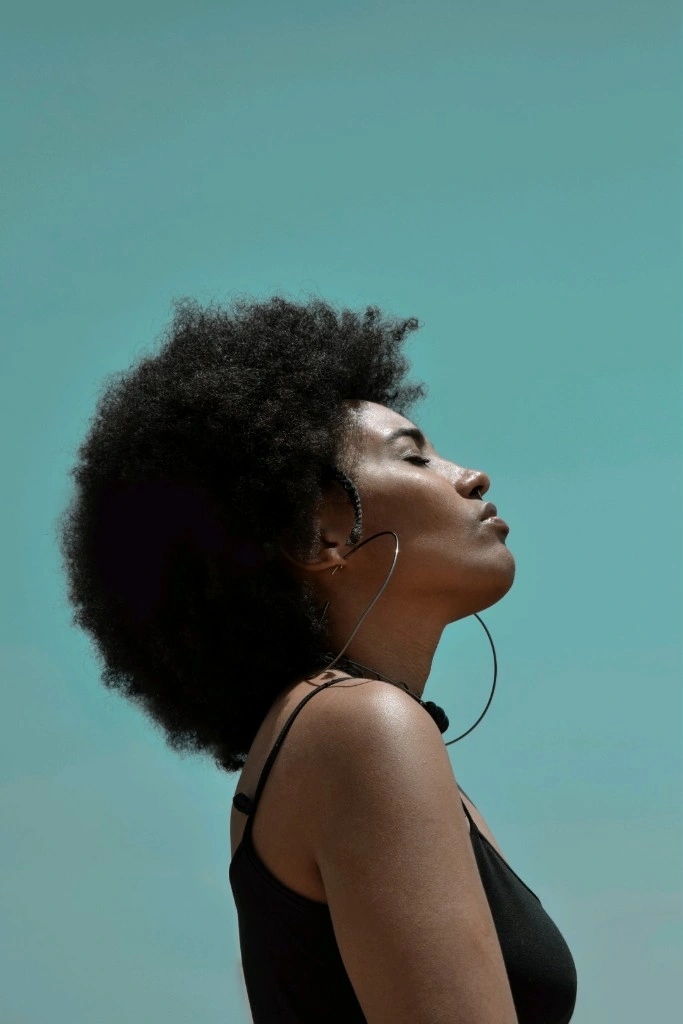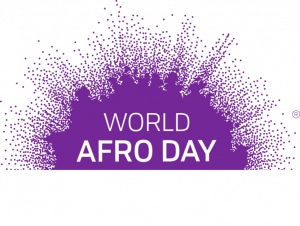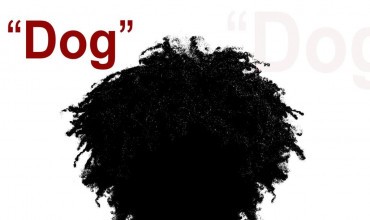By Tehila Okagbue
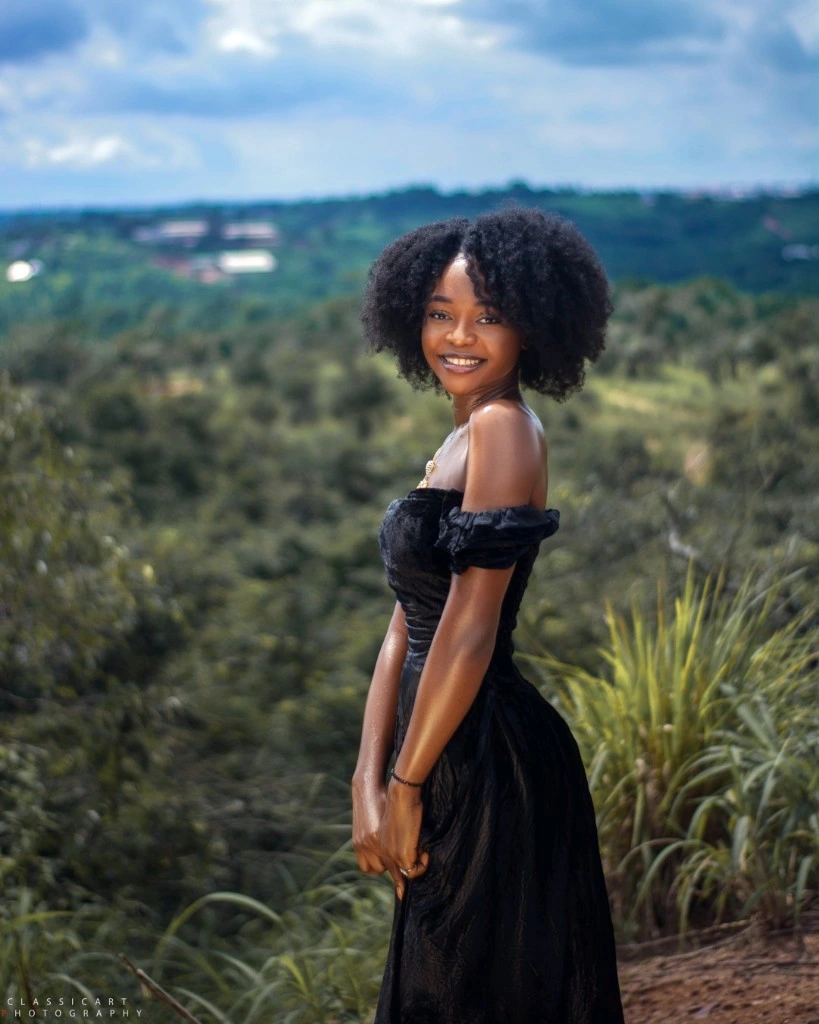
I remember excitedly concluding that I was going natural; I felt giddy inside whenever I heard someone say “Afro-textured hair.” I was going to cut my relaxed hair and let my natural hair grow out on my head from scratch. No chemicals to aid it in growing in a straighter shape. No, manipulating it or changing its form or texture, but simply letting it grow from my roots. It was called “transitioning from relaxed hair to natural hair”. I was so happy. The period before I made that decision was the first time I had ever cared to Google “Afro hair” and the history behind it, and I was amazed at my findings.
I found that African people have the most unique and diverse hair on the planet and our hair has always been a huge part of what makes us who we are: part of our identity as a people.
I also established that the Motherland is where the Afro’s origins can be found. Afros, braids, and other tribal hairstyles were initially common throughout Africa. Roles, hierarchy, rank, and place within the tribes’ community were all defined by hair. Afro heritage was a big deal. Intrigued by this new information that no one ever talked about, I went ahead to start my natural hair journey.
The thought of hair discrimination existing in Nigeria was baffling because it had never happened to me while my hair was relaxed and as such I hadn’t been prepared for it.
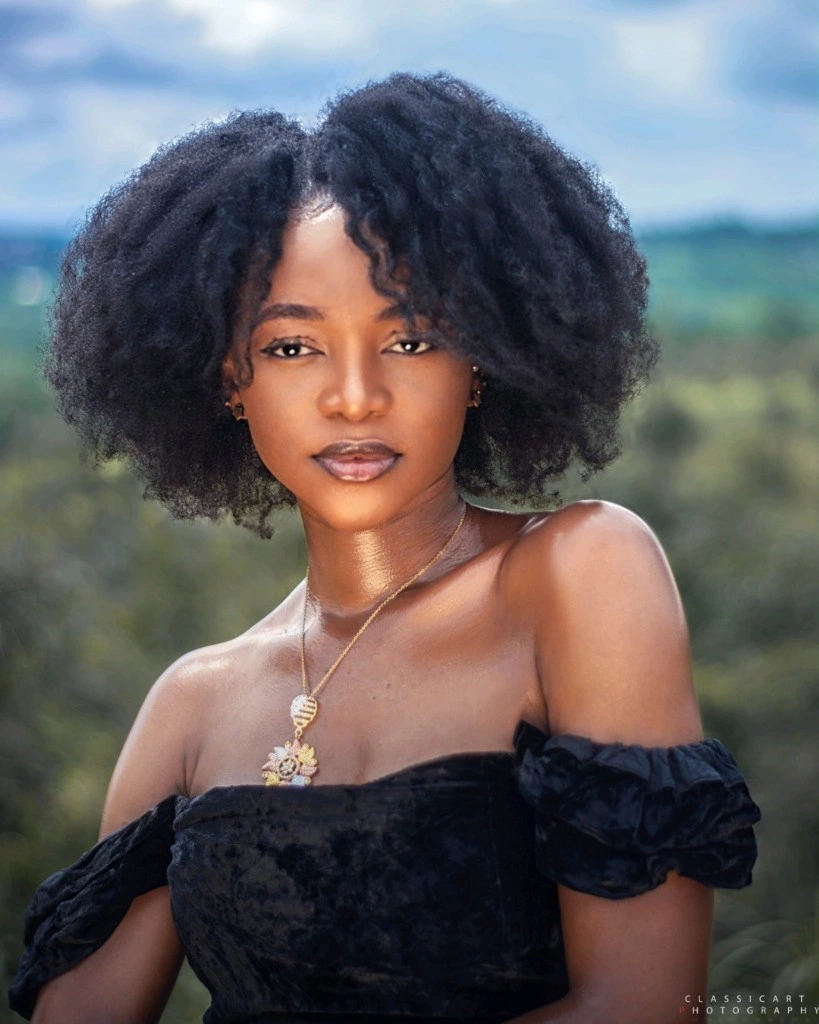
This takes us back to my story from the beginning.
I had now gone natural, and to be fair, I was receiving lots of praise from my peers and enjoying my natural hair as it grew day by day. So, you can imagine my shock when I had my first major Afro hair discrimination experience. I had met my boss from work randomly at the market, and she did not stop complimenting my hair. She kept saying how she thought it was an Afro wig and how it looked puffy and beautiful. I smiled and thanked her. My smile grew even wider as I remembered we had a meeting the next day, and this would mean more compliments from her and the rest of the team. Needless to say, I wasn’t smiling the next day.
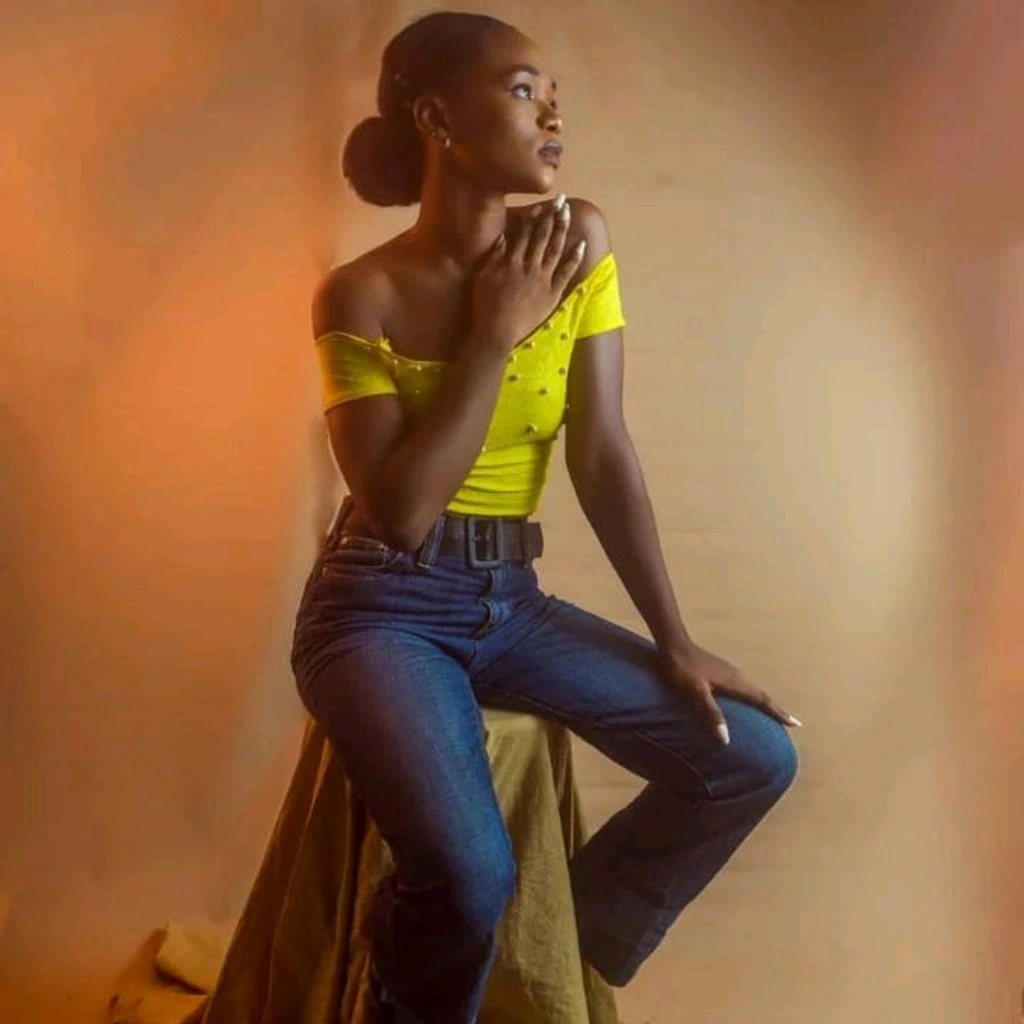
I still remember the glances I received from her while the meeting was going on, and how quickly she asked to see me immediately after it was over.
“Why would you attend a meeting with your hair like that?”
Those were her exact words. The same hair that she loved the day before? It was quite a shocker. More so because I had the same style along with two different coworkers. A sleek back low-puff. The only difference I saw was that their hair was relaxed (straightened with a chemical relaxer), so they didn’t have a puff. I had even laid my edges. I honestly failed to see the problem she saw. And I wished that she could see the true problem, her conditioned mindset. The one she had acquired from Westernization. The one that the media had constantly portrayed as “fit”. The one which had led her to believe that neatly packed Afro-textured hair was inappropriate for the workplace in Nigeria.
Exploring Hair Discrimination Experiences Of Afro-Textured-Haired Women In Nigeria.
For this section, I reached out to a few natural hair content creators from Nigeria on Instagram, and here’s what they had to say about some of their experiences.
Olamide, @the.hairaddict on Instagram, says:
“When I go to work, most times I just pack a high puff. More recently I started tying scarves because every time I decide to properly style my hair or carry my Afro, literally everyone would give stupid comments like “No hairstyle today?” or “You’re looking rough” or “I thought natural hair was your thing, why is your hair looking like this”.
I packed a low bun once but didn’t lay my edges and one of my coworkers said “Why is the front of your hair looking like that?”
It’s always so annoying but I’m not confrontational so I mostly ignore and endure. It’s unfortunate really.”
Nonye, @Naturalblackgirliee on Instagram, says:
“I have gotten all sorts of discriminations against my natural hair but the ones that stood out are these:
My lecturer singled me out of the crowd at the first orientation at my university as a freshman. He told me to go cut my hair or make it neat and that I shouldn’t carry that nonsense to school again. By nonsense, he meant the beautiful puff that I had put in extra effort to pack and even laid my edges perfectly. This experience comes to mind first every time this question comes up.”
Maranatha, @Naturalgirlofficial_ on Instagram, says;
“There are a lot of misconceptions in the natural hair community such as natural hair is hard to manage, without good genes it is impossible to grow healthy long hair, or even how unprofessional natural hair can be. LOL, we have heard a lot of these, haven’t we? But I’m glad that a lot of Creatives, on the other hand, have proved these to be wrong.
In conclusion, I’d love to encourage every natural out there to keep taking care of their hair. Try out products, try out beautiful hairstyles, and never feel ashamed to carry out your hair because it is the crown you never take off.”
Essie, @Natura_essie on Instagram says:
“One very lame misconception I’ve heard is that “Natural hair is not for everybody”. Most times when this is said, it isn’t said from a place of positivity. They say it because they believe people’s head shape or appearance is not suited for ‘that kind of hair’. I think this is very lame because this is the hair that grows on our head, out of our scalp. It is meant for us!”
Myths About Afro-textured Hair.
Some People See and Think Of Afro Hair as “Dirty”, “Unkempt”, “Tiresome”, and “Burdening”.
These are troubling myths and false perceptions that we need to let go of. The media might not have portrayed Black women with their natural hair as much in the past but times have changed. Black men and women worldwide are on the rise and are leaders in numerous industries. We are in the 21st century now and we should change the narrative.
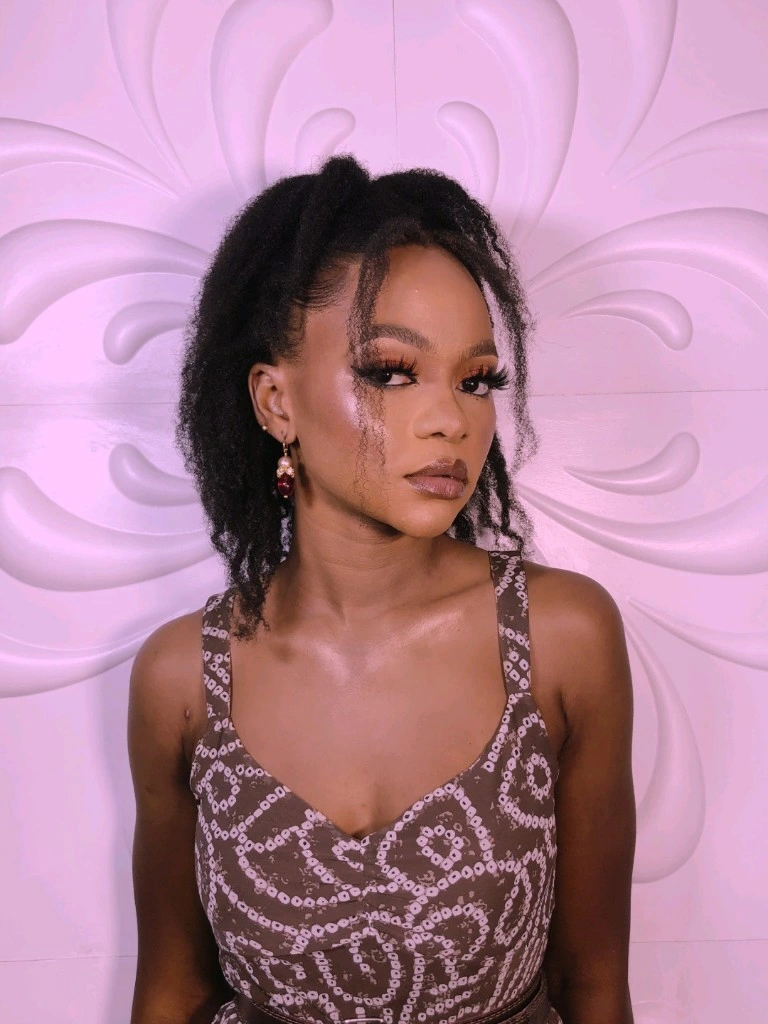
Afro Hair Is “Unprofessional” And Does Not Appear “Classy”.
This particular misconception needs to be thrown out the window! There are thousands of ways to style Afro hair in the workplace that are simple and very classy. People need to realize that –
- Locs are professional.
- Bantu knots are professional.
- Our natural hair on its own, being styled in a bun or any other way is professional.
- Unlaid edges are professional.
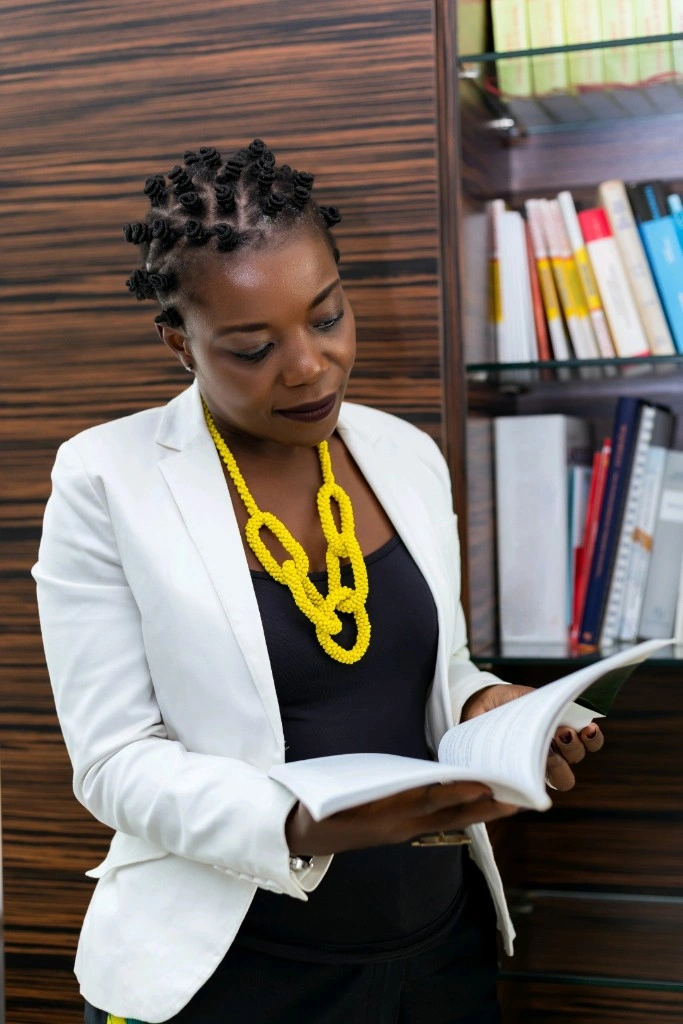
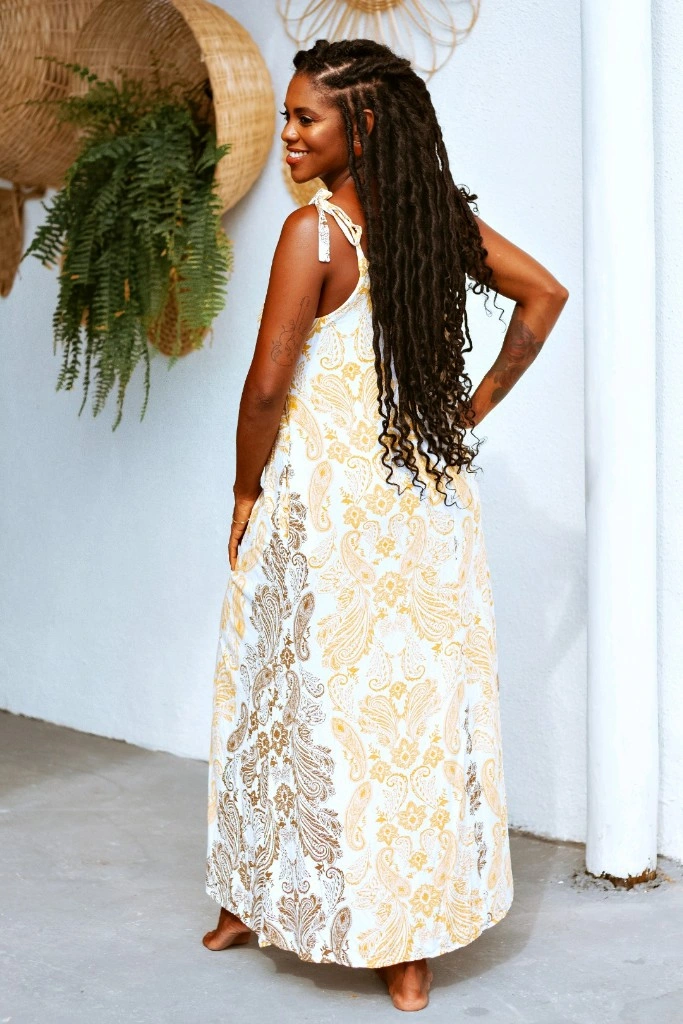
Afro Hair Is “Too Hard” and “Unmanageable”.
This is an unfair misrepresentation of our natural hair. These terms are continually in circulation, pushing a negative narrative of the natural hair community and it is completely wrong. Our hair is not “too hard”, nor is it “unmanageable”. It just needs us to appreciate it, embrace it and care for it in the same way we would any prized possession of ours.
Final Thoughts on Stopping Discrimination and Misconceptions of Afro-textured Hair.
We need to educate ourselves more about our hair to be able to learn just how remarkable it is. By highlighting the beauty and total acceptance of our natural Afro-textured hair in an African country, we are one step closer to ending Afro-hair discrimination around the entire world.
